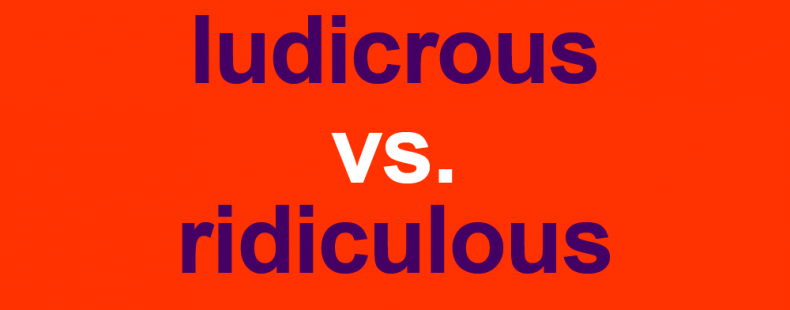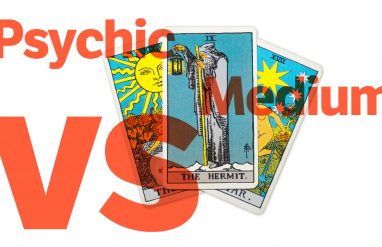Ludicrous means something is silly enough to cause amusement. Ridiculous means it’s absurd enough to invite mockery or derision. Ludicrous has a more playful and amusing sense than ridiculous.
You probably already knew these two words can be used to describe something that’s nonsensical or silly. But does that mean these two words are synonyms?
What does ridiculous mean?
We use ridiculous when something is “absurd” enough to be “laughable.” Saying something is ridiculous often means you think it deserves mockery or disrespect. An 1857 guide called English Synonyms says that, “Ridiculous includes an idea of contempt, which ludicrous does not convey.”
Ridiculous is also a slang term that means “unbelievable or amazing.” It can refer to things that are unbelievably good or unbelievably bad. For example, you could say, “That concert was ridiculous!” after seeing your favorite band give a particularly good show. You could also say, with much less enthusiasm, “That concert was ridiculous,” after seeing a show you thought was laughably bad.
Ridiculous is ultimately derived from the Latin word rīdiculus, meaning “funny, amusing.” Ridicule is related. Not surprisingly, synonyms of ridicule include absurd and laughable (which appear in its definition), silly, and—aha!—ludicrous.
What does ludicrous mean?
Ludicrous comes from the Latin word lūdicrus, which means “sportive, playful.” Ludicrous is used when something is silly or absurd enough to cause laughter. English Synonyms uses this example: “Nothing can be more ludicrous than the attempts which a tipsy man makes to endeavor to prove to others that he is perfectly sober.” A tipsy person pretending to be sober can be funny, but they don’t necessarily cause others to feel contemptuous toward them. Synonyms for ludicrous include comical, foolish, and laughable.
Are they synonyms?
People tend to use ludicrous and ridiculous to make the same point—so it’s up to you which word you choose. They both express a sense of silliness, and yes, these two words can, effectively, be used as synonyms.
In casual speech, people tend to use ludicrous as a more sophisticated synonym for ridiculous. An example can be found in an article by Lesley Anne Down in Soap Opera Digest: “The curtains would open and it would be just her standing in some ludicrous pose, like Aphrodite.” If ludicrous is replaced with ridiculous, the sentence still makes sense: “The curtains would open and it would be just her standing in some ridiculous pose, like Aphrodite.”
Of course, if you’re using ridiculous as slang for “unbelievable or amazing,” then ludicrous would not be an appropriate synonym. If, like tennis player Andy Murray, you’re looking for the right words to describe an opponent’s performance, only ridiculous would do: “[Rafael Nadal] played so much better than me,” the [then] 21-year-old 12th seed told reporters [in 2008]. “His forehand was ridiculous, I couldn’t get any rhythm … I felt rushed on every point.” It’s OK, Andy, it would be ludicrous for us to even imagine playing against Rafa.
Looking for some more commonly confused words. This match-up between Pragmatic vs. Dogmatic is nothing to laugh at!














